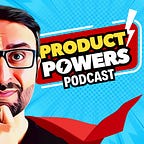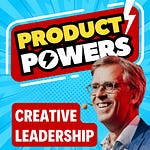In this episode, Paddy Dhanda sits down with Mike Rohde, the renowned Godfather of Sketchnoting, at the International Sketchnote Camp in Leiden. They delve into the essence of visual thinking, the rich history of sketchnoting, and ponder its place in a rapidly advancing AI-driven world. Join us for a journey that bridges the gap between ancient cave drawings and the digital age, exploring the timeless human joy of visual expression.
Key Takeaways:
The unique spirit and community of the International Sketchnote Camp.
Sketchnoting: More than just doodles, it's a visual language that transcends disciplines.
The future of sketchnoting in an AI-dominated world: Will the human touch prevail?
Photos from the International Sketchnote Camp 2023
Paddy Dhanda (left) Mike Rohde (centre) Grant Wright (Right)
Sketch by Mike Rohde
👉 Join The Visual Jam community to watch Mike's tutorials on Sketchnoting: Click Here
Mike Rohde
Mike Rohde is the author of two books: The Sketchnote Handbook (2012) and The Sketchnote Workbook (2014). He presents sketchnoting workshops around the world that encourage people to use visual thinking skills to generate, capture and share ideas more effectively.
His popular first book, The Sketchnote Handbook, convinces people around the world to become sketchnoters every day. Translated into German, Russian, Chinese, and Czech, it guides readers in using their natural visual capabilities to create sketchnotes for better understanding, and to have fun taking notes. The video edition of The Sketchnote Handbook includes 70 minutes of documentary-style instructional videos.
Mike’s second book, The Sketchnote Workbook, expands the application of sketchnotes, showing readers how to use them to generate ideas, plan projects, document processes, and capture experiences. The Workbook is packed with challenges and worksheets that help readers accelerate their sketchnoting skills. All versions of The Sketchnote Workbook include 2 hours and 41 minutes of documentary-style instructional videos.
He is the founder of SketchnoteArmy.com a site dedicated to finding and showcasing the work of sketchnoters from around the world.
Mike is the illustrator of bestselling books REWORK, REMOTE, The $100 Startup, and The Little Book of Talent. He has been commissioned to create live sketchnotes for conferences and events, including SXSW Interactive, An Event Apart, Summit Series, World Domination Summit, Storyline Conference, and Chick-fil-A Leadercast.
Mike is a veteran designer who creates usable, compelling design solutions for software and web applications. He lives in Milwaukee, Wisconsin with his wife and 3 children.
⚡️ In each episode, Paddy Dhanda deep dives into a new human Superpower and practical advice on how you can apply it immediately.
👉 Sign-up to Newsletter: https://www.superpowers.school/subscribe
👉 YouTube: https://www.youtube.com/c/paddydhanda/
★ BUY ME KO-FI ★
If you enjoy the podcast, then you can donate a small amount here as a token of your appreciation: https://ko-fi.com/paddydhanda
Transcription:
[00:01:01] Paddy Dhanda: So, Mike, you're here at the International Sketchnote camp over in Leiden with me, and I just wanted to pick your brains on a few things. Is that okay?
[00:01:09] Mike Rohde: Yeah, that's great.
[00:01:10] Paddy Dhanda: By the way, it's amazing meeting you face to face because I think for the last. Two and a half to three years, everything we've done is virtual. Yeah. So it's so good to, to meet face to face, what brings you across the planet, all the way to Leiden and to this amazing event. Well, I
[00:01:26] Mike Rohde: think I was talking with one of the founders Marianne, Roddy, one of the four who founded this event in Hamburg in 2017.
We were talking a little bit about how she's proud that, you know, it's continued with community support. It's all volunteer organized. And the community supports those volunteers doing it. So that's one aspect. I love the volunteer, I love the community coming together, but I, what we talked about was, there's a spirit here that's unique among other events that I've been to.
It's a little bit deeper than just, oh, we're coming to look at the new medical device and whatever. Right? There's, that's an interesting thing, but you're sort of going for your company or here it's more. Half of it is to see friends as much as it is to learn new things or to be challenged or those things.
So it's, I think it's more of a rich experience that makes it makes a difference.
[00:02:18] Paddy Dhanda: Yeah. And it's my first time, I'm really looking forward to seeing how the next three days go and hearing your talk as well is gonna be amazing. Yeah. But in terms of the event, I mean, it's called the International Sketch Note Camp.
And you are Mr. Sketchnote, the author of the Sketchnote Handbook. And I guess for anyone that doesn't know what Sketch notes are, could you just give us a quick overview? What are they and why did you choose the term sketchnote?
[00:02:45] Mike Rohde: Oh, good question. So I would describe Sketch notes as the visual way to, to express your thinking.
Now, whether that's you're listening to someone speaking and for you, it makes sense to do lettering or drawing shapes, or even drawing people in motion or objects that are coming to you as you're listening to someone present to you. That's sort of where I began with it, but I've discovered that sketchnoting can be applied in lots more ways than that.
Right. I use them to take notes in my bread making. I use them to take notes as I'm planning pizza. I use them for all kinds of things in my work. As a user experience designer, like solving the problem of how this interface will work and where elements should be before I commit to using the computer.
I'm a real firm believer in visualizing first because I feel like a lot of times when you go to a device, you tend to get locked in the what the device allows you to do. And by sketching, And thinking and writing. So I think it's a combination of this drawing and writing together. So it's sort of taking the best of each one and then making them better than the sum of their parts.
So if you're a writer, you know, obviously that's a powerful thing, the verbal, but when you start introducing visuals to support what you're writing, a lot of times you might be able to draw a really simple image that might take paragraphs to describe. And so you're saving time. In that case, but it's really supporting the text.
So in a lot of ways they work in conjunction with each other. And you know, the things that I identify as being part of sketch notes are of course writing, but then lettering, that would be step one, where you're taking the writing and you're emphasizing words, making them bigger, doing them in color, doing them in script or some letter form that's kind of unique.
Then maybe the next level would be containers. So squares and circles and triangles and other shapes, organic shapes to enclose things. And then probably the level above that would be drawing where you're intentionally drawing people or objects or concepts would be probably the highest level where it's you're taking some thing that's in your brain and visualizing it on paper, either as, you know, a concept or a metaphor so that others can understand it or you looking at your notes will be able to recall what it was and make sense out of it.
[00:04:55] Paddy Dhanda: I think for me, Mike, one of the big challenges with sketch notes on a personal level, and maybe it's something that other people might be thinking as well, is the speed at which you're able to capture information.
If you are writing things down and you're having to visualize and draw
[00:05:10] Mike Rohde: things and listening while you're doing it, or thinking, yeah,
[00:05:14] Paddy Dhanda: that's like, you know, three or four things all happening simultaneously, like, how do you do that? Because that. Could be quite overwhelming for someone that A isn't so confident with drawing.
Yeah. But then even having to capture information and listen really attentively can be tough as well. So what's your advice for anyone who has challenges with that?
[00:05:35] Mike Rohde: They wanna do it, but they feel this gap between ability and desire, right? Yeah. I would say it's a learned skill. So that first off is if you're worried that somehow you should be doing this, I think it's a learned skill.
You have to build up that muscle of listening and capturing. And one of the ways that I encourage people who want to get into sketch noting is that they don't know anything about it, but they like this idea. They think maybe they doodle all the time and they wanna redirect that doodling into something impactful or memorable that they can use.
Yeah. Would be, you're probably pretty good at listening and writing. To some degree. So my encouragement to people is to continue writing and then maybe what you can do is, The first step would be to sort of demarcate a little column to the right, or if you're, you know, if you want, you can make it to the left and reserve that for your imagery.
So you continue to write. And then as you think of ideas, like maybe when the speaker is rambling or in a little break where you're, you have a little moment, you can draw a little image in that column and then go back to writing. And then when you have an idea, put it in the draw another image in the column, so you end up with this two column format with writing on the left and images on the right.
Right, related to the text. That would be step one. Then maybe the next step would be when you feel like you've got confidence doing this simple way. Maybe then you challenge yourself with something that's not if your job depends on it, you know, you, maybe you wait till later, but pick something fun or something low stakes where then you could say, okay, on this one, I'm going to do half of the site, I'll write on the half and write a little less and draw a little bit more detailed image of what I'm imagining.
And then maybe on the other, you start with the drawing and then you describe it on the right. So you start to like mix it up a little bit. Right. And you bring the drawing in and make it a bigger part of what you're doing. And then you just keep practicing. And I think a lot of it is just the practice of listening and do and acting.
Is helpful because it's something you don't normally do. You really have to get used to it. And what's really interesting is you get into this practice, you start noticing that a lot of speakers often repeat their statements. Over again, or they go off, they go like, you might have the gist of the idea and they go on and describe in more detail.
Yeah. That you maybe aren't interested in that much detail or you just want little bits. So when you've got the main concept down, you can be relaxing and just adding little annotations to fill out that. Concept, so you'll find out that there's more space. It's almost like the more you pay attention and do this work, the more space starts to expand.
It's like I've heard in sports, like when sport, when athletes, when they first start, they think too much. And it they act slow and they're not fluid. And as they understand the game, they say the game slowed down for me. Right. Where now all of a sudden I'm faster than the game is and I can see this person's going to kick this ball over here, so I'm gonna go to that place where I think they're gonna go.
You make a judgment. Right. So just like this, you're sort of, as you practice it, you start seeing patterns. Yeah. And then you can adapt and build your skills.
[00:08:32] Paddy Dhanda: In the past I've tried to summarize a talk and I've really struggled with certain talks.
And I'm thinking, is it me? Am I not listening? You know, as, as deep as I should. But what I've actually found with Sketch Notes is you're able to really identify if a talk is clear or not. Yeah. And because if you're struggling to find those key points and visualize aspects of the talk it sometimes is a clue that the talk may not be structured so well.
And obviously we don't wanna name names of the speakers that end up in that situation, but I think for me, I find it really valuable to even understand that aspect of it, to be able to analyze what talks are impactful and good, because there's a really clear set of messages.
And in some there are just so many messages that you're over visualizing and you find that it's just information overload. So I think it's a really useful tool to even be able to identify those really useful talks versus those that aren't.
[00:09:31] Mike Rohde: Yeah. And you might even describe that as less discipline.
So the discipline speaker realizes there's a limited amount of messages that a audience can absorb. And they need to be really clear and they need to set out and sort of define them. And then, Ex explain them and then redefine them at the end, sort of, you know, tell them what you're going to say.
Tell them and tell them what you said. Right? Yeah. Because you need to reinforce that. 'cause many people may not be taking notes of any kind. Right. So people who are really disciplined and they know their message, I'll tell you that practicing sketch, noting you spot them right away. Right, exactly.
As you say. And the ones who sort of ramble and are kind of going off on a tangent, it's hard to know where they're going to end up. You notice those right away? It, that brought up, when you talked about whether there was, you know, you're thinking I can't, it's tough. Is there something wrong with me? I will say that there is a case for pre-planning.
So, and the example that I'll give you is my friend Rob Demio is a physicist. He started doing sketchnoting. He challenged himself to do it all over his work. And one of the challenges he found was he had visiting scientists coming to his to his work where he used to work. They're amazing scientists.
Like his, the access to these scientists was amazing, right? So he went there and he decided to do sketch notes. But what he found was he couldn't just show up in the room and start sketchnoting. I mean, he could, but he was always at a disadvantage and always playing catch up and not quite on top of it.
Right. And what he realized was, is that because the scientists are deep in a study of a certain. Thing that when he prepared, like he knew they were coming in a month, he would start reading their papers, right? He might watch previous talks, like really get into the groove for what it is that they're all about, and sort of build a base level of knowledge of their topic before he ever showed up in the room.
And so when he came into the room, because they would, these scientists would often make the assumption, you know, all my, you've read all my papers, you know, all my base arguments. I'm not gonna repeat them here. Right? I'm gonna jump right into the current. State of things. So there's an assumption being made.
Yeah. So what he did, what he realized was for those kind of situations, all that preparation really helps. And you, I would say that professional sketch noters or graphic recorders do the, do that as well. I would do that, like I would research the talk. Or the person, if I can get pre-release, you know, slides as a sketch note or visual thinker.
Yeah. You often can get. Pre-release slides, they might not be final, but you get the general idea of where this person's going. Yeah. Which gives you this, you know, foundational advantage. So when you get in the room, like, okay, I know this is where this person's gonna go, and you have a general idea, so you're not totally surprised Right.
When you go in the room. So that would be the other thing is maybe there's a little bit of pre-work, even if it's 15 minutes of understanding what this person's about, where they came from, what's their space. So that when you get into the thing, you'll have all the context. That will help you make sense of what they're saying.
[00:12:23] Paddy Dhanda: Got it. Got it. And Mike talking about the future to look to the future. If we look to the past, we know that as cave people, we were drawing on walls on caves. We used visuals as a way of passing on stories from generations. But now with the world of AI and technology the way it is, it feels like this could be a skill that gets overlooked.
I mean, what's your opinion? Is there still a place for sketch notes in the future? Or will AI kind of take over and what's your feeling on that?
[00:12:58] Mike Rohde: That's a great question. I don't know that I can imagine the future that clearly, I would hope that there would be limitations on AI's ability to make sense of things and make those jumps that humans make and that it would provide opportunities for those who do visual thinking in the general sense to have a place. Like being in a, like maybe there's an AI at some point that can be in a room, listen to all the discussion, direct that discussion, capture it visually and make sense out of this potential chaos. That becomes an artifact that team later uses to move to the next level.
Or, you know, asking questions like, I think one thing we can do to separate ourselves is move a little bit beyond just being passive. Scribes of just writing down what's being said and trying to be neutral and to maybe enter more into the discussion, ask questions in our sketch notes of, well, if that's true, then what does that mean for this or for that, and sort of become almost like, get into discussion and open the question and encourage people who are reading or looking at our sketch notes to think about things that if this were true, like what does that mean?
And to start being thoughtful. Yeah, because you know, AI in a lot of cases is building on our past work. Right? Whether it's writing or imagery, it's taking, and often it can do a really good facsimile, but basically what it's doing is it's faking based on your prompts, whatever that prompt is. Yeah.
It's taking all its absorbed knowledge and sort of building something that hopefully it looks like the thing you asked for, but a lot of times there's not a whole lot of understanding on why things are so, it's sort of, some cases can be a little bit of a facade. Without depth. Like you've heard about chat, g p t hallucinating.
When you ask it to do too much, it sort of runs out of logic or something. Yeah. And it starts making up like citing things that don't exist and making things up that aren't true and so forth. So I think there's still, at least right now, I mean, who knows in the future that a place for human intervention and human, I think we're interpreters in a lot of ways.
We take this complex ideas and we boil them down and simplify them into a way an image of some kind. Whether it's digital or analog, that makes it either ea easier for us to understand and proceed, or a team of people to understand and proceed with the next step of whatever the thing is that we want to achieve.
[00:15:15] Paddy Dhanda: Yeah, if I think about some of the hobbies that people have, like my mom loves knitting and in a way I'm sat there thinking, Why do you spend hours and hours knitting when Yeah, you could just buy a knitted jumper or a hat or whatever it is that you're making, but there's great joy in that.
Yeah. And I think as humans we do get great joy out of doing certain things, and I think visuals are part of that as well. And I'd hate to think that in the future we stop doing all of those things that make us happy, even though something could do them better. Yeah. And so I think I have that hope that as humans we still hang on to these traditional skills and these human skills that we've been brought up with.
And so, that, that's my hope. Let's see, you know, what happens with that? Yeah. But absolutely. I hear what you're saying the current state of ai. Is a little bit hit or miss. It's almost like a child that wants to keep pleasing you and so when it actually doesn't have the right information, it still wants to please you just
[00:16:18] Mike Rohde: makes a guess.
Yeah, absolutely. I mean, something I thought about in discussion with this is I think back to in when I was early in my design career, 'cause I'm trained as a designer was when the desktop publishing tools came into existence and we all worked on computers, on Macs, on a network. What we found though was because of the area where we had our office, the power would, we'd have brownouts and blackouts.
So all the network computers would go down. Right. Well, younger designers than me were totally stuck. They just couldn't do any work. Got it. But I had been trained traditionally, so I just got paper and pen and started working and doing. I just kept working because I had this training. So I think I wonder about if you become dependent on these AI tools.
Yeah. To the point that you can't do this stuff anymore. Like a lot of it is about the process. The process and the thoughts that come as you do the process. If you lose that ability and suddenly, you know, mid journey is down today. Yeah. Which, you know, maybe could happen. Or you're in a place where you can't access it or whatever, like, could you in a pinch do that work?
And so I would be careful to give up. Which comes back to the knitting question, right? Or me, I like baking bread, right? I could go to the store and buy a loaf of bread probably for, you know, a little bit more than it cost me to bake it. But I enjoy the process. I enjoy controlling the elements.
Yeah. And then the output and the being proud of producing something that seems, you know, complex. But if you, once you learn the process, it becomes a skill. And then you can use that, those, that knowledge that applies in other ways that you can't always predict. So, Absolutely.
[00:17:47] Paddy Dhanda: And Mike, I'm conscious of time and you are gonna be up first as the keynote speaker.
Yeah. So, I wanna give you some time back to get prepared and get in the right mindset. Can't wait for your talk, by the way. Can you give us maybe three points that you're gonna be talking about in your keynote speech
[00:18:03] Mike Rohde: today? Well, we're gonna be talking a little bit about a little bit about me.
Like one of the things that the organizers wanted to do was help humanize me because sometimes because I came up with this word, You know, people call me the godfather of sketch notes or whatever, and there can be like a, I dunno may, maybe not dangerous, but like people like put me on a pedestal and I'm just a regular guy, right?
So, who loves Curry? Who loves, I love Curry. Yeah. I can even eat relatively hot curry, although I haven't pushed my limits. Your mom could probably test those limits on me, but Talking a little bit about who I am as a person and some of my experiences and why I'm was led to this place where I am. And so it's gonna be a little bit more informal.
Instead of a traditional keynote, it's gonna be a little bit more of a, who is Mike and humanizing and describing who I am to the audience. So something a little different.
[00:18:52] Paddy Dhanda: Oh, I can't wait. And yeah, it's gonna be fantastic. Thank you so much once again, Mike. It's always a pleasure.
No problem. To talk to you and yeah. I'm so glad we had this opportunity, so thank you.
[00:19:00] Mike Rohde: Yeah, thanks Paddy.













